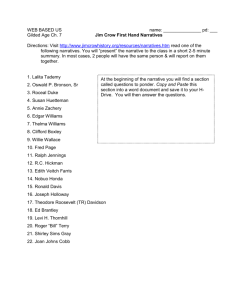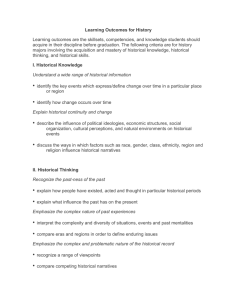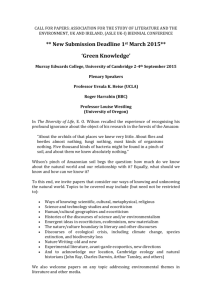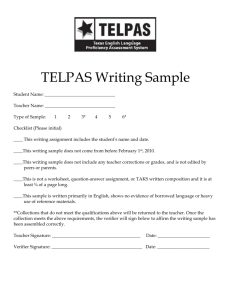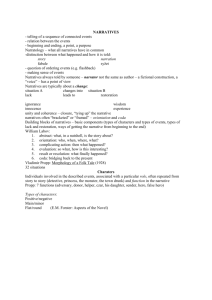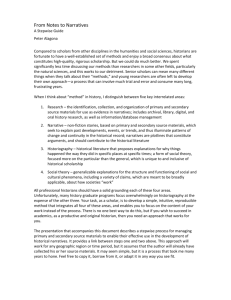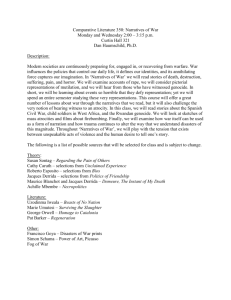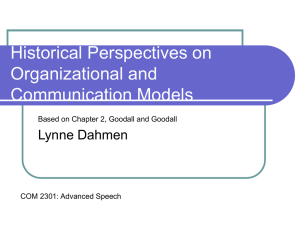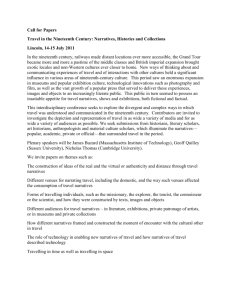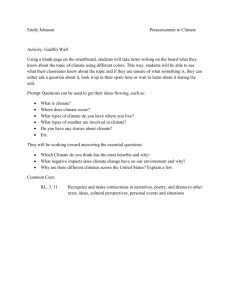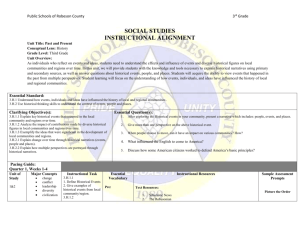Energy Narratives - ASLE-UKI
advertisement
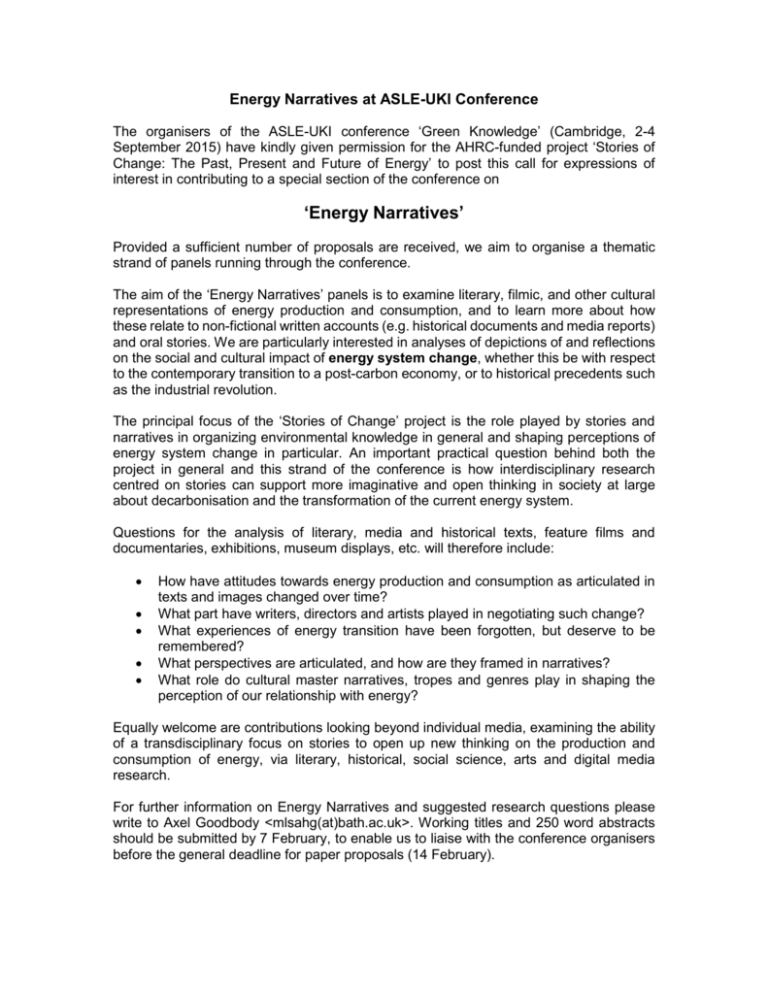
Energy Narratives at ASLE-UKI Conference The organisers of the ASLE-UKI conference ‘Green Knowledge’ (Cambridge, 2-4 September 2015) have kindly given permission for the AHRC-funded project ‘Stories of Change: The Past, Present and Future of Energy’ to post this call for expressions of interest in contributing to a special section of the conference on ‘Energy Narratives’ Provided a sufficient number of proposals are received, we aim to organise a thematic strand of panels running through the conference. The aim of the ‘Energy Narratives’ panels is to examine literary, filmic, and other cultural representations of energy production and consumption, and to learn more about how these relate to non-fictional written accounts (e.g. historical documents and media reports) and oral stories. We are particularly interested in analyses of depictions of and reflections on the social and cultural impact of energy system change, whether this be with respect to the contemporary transition to a post-carbon economy, or to historical precedents such as the industrial revolution. The principal focus of the ‘Stories of Change’ project is the role played by stories and narratives in organizing environmental knowledge in general and shaping perceptions of energy system change in particular. An important practical question behind both the project in general and this strand of the conference is how interdisciplinary research centred on stories can support more imaginative and open thinking in society at large about decarbonisation and the transformation of the current energy system. Questions for the analysis of literary, media and historical texts, feature films and documentaries, exhibitions, museum displays, etc. will therefore include: How have attitudes towards energy production and consumption as articulated in texts and images changed over time? What part have writers, directors and artists played in negotiating such change? What experiences of energy transition have been forgotten, but deserve to be remembered? What perspectives are articulated, and how are they framed in narratives? What role do cultural master narratives, tropes and genres play in shaping the perception of our relationship with energy? Equally welcome are contributions looking beyond individual media, examining the ability of a transdisciplinary focus on stories to open up new thinking on the production and consumption of energy, via literary, historical, social science, arts and digital media research. For further information on Energy Narratives and suggested research questions please write to Axel Goodbody <mlsahg(at)bath.ac.uk>. Working titles and 250 word abstracts should be submitted by 7 February, to enable us to liaise with the conference organisers before the general deadline for paper proposals (14 February).

